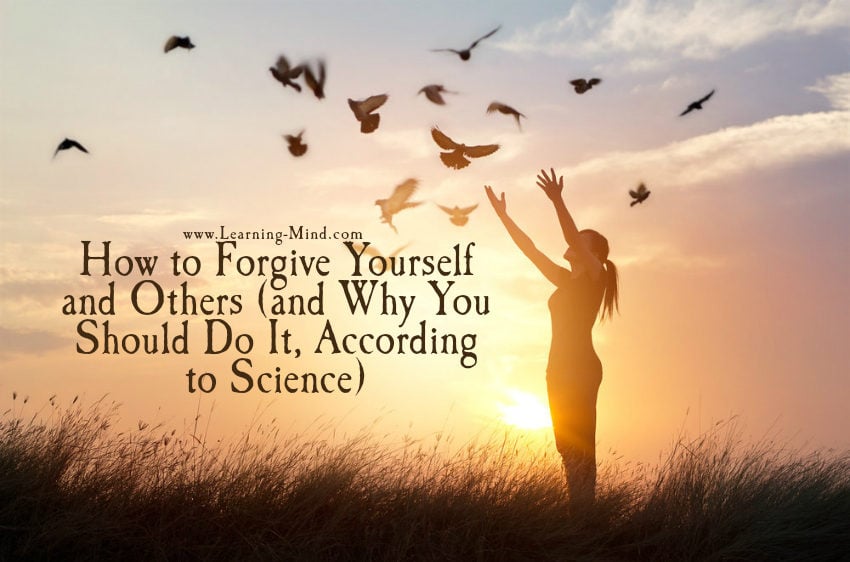
Why should you learn to forgive yourself and others? Are you the type of person that brushes off an act of unkindness or do you hold a grudge for years? If you make a mistake, do you find it hard to forgive yourself or does it barely register?
Practicing forgiveness has many mental and physical benefits, with scientific results to back up these benefits. So let’s look at why it is important to learn how to forgive yourself.
Dr. Frederic Luskin is the Director of the Stanford University Forgiveness Project and has long been associated with the healing benefits of forgiveness. His research has helped survivors of the 9/11 World Trade Center attacks, the violence in Northern Ireland and Sierra Leone.
Dr. Luskin’s studies have revealed that the benefits of forgiveness include:
His repeated studies on forgiveness show that those people who do forgive are also more likely to:
“Because not forgiving–nursing a grudge–is so caustic,” says Dr. Luskin. “It raises your blood pressure, depletes immune function, makes you more depressed and causes enormous physical stress to the whole body.”
Another study looked at the connection between forgiveness and the mental and physical health of 148 young adults. As expected, there was a strong connection with high stress levels and health problems. But what was not expected was that in the cases where the young people showed forgiveness, in others and themselves, this connection disappeared.
Author of the study, Loren Toussaint, an associate professor of psychology at Luther College in Iowa, said this:
“It’s almost entirely erased–it’s statistically zero. If you don’t have forgiving tendencies, you feel the raw effects of stress in an unmitigated way. You don’t have a buffer against that stress.”
So when we don’t forgive, our bodies are vulnerable to stress in its most brutal form. When we do forgive, we somehow shield ourselves and are protected from the savage onslaught that stress has on our minds and bodies.
Dr. Dabney Ewin is known as the Burn Surgeon and in the course of his career often dealt with severely burned patients. Some of his patients came in because of an accident, others through the negligence of someone else.
Dr. Ewin used many unorthodox methods on his patients, including hypnotherapy, but he soon noticed that the majority of them were extremely angry at their situation. He began to realise that all their anger was interfering with their recovery, as their body would continually reject skin grafts.
It was when Dr. Ewin started assisting his patients in the process of forgiving that he noticed a big improvement. He would explain to his patients that their feelings and thoughts were affecting their healing and would ask them to let go of their anger and replace it with forgiveness, for themselves or another person.
The patients drastically improved with skin grafts ‘taking’ first time and healing times significantly reduced. He went on to teach his methods to other burns doctors and received many letters of commendations from around the world.
There is a lot of evidence to support that you should learn to forgive, but how do you go about it?
It’s all very well me sitting here, telling you that it is better for your mental and physical health to forgive, but what if the situation is simply too devastating? How do you forgive when someone has taken a loved one, or if you have unintentionally caused indescribable sorrow to others?
Forgiving someone might seem like the last thing you want to do right now. If you do not, however, it is like leaving a wound open, refusing to have it stitched up, and every day sticking a knife into it. It will never heal and cause you long-lasting pain.
The person who suffers the most is us, while the offender more than likely moves on with their life. Forgiving allows us to move on also. If you learn how to forgive yourself and others, then, we can all heal.
“To forgive is to set a prisoner free and discover the prisoner was you.”
-Unknown